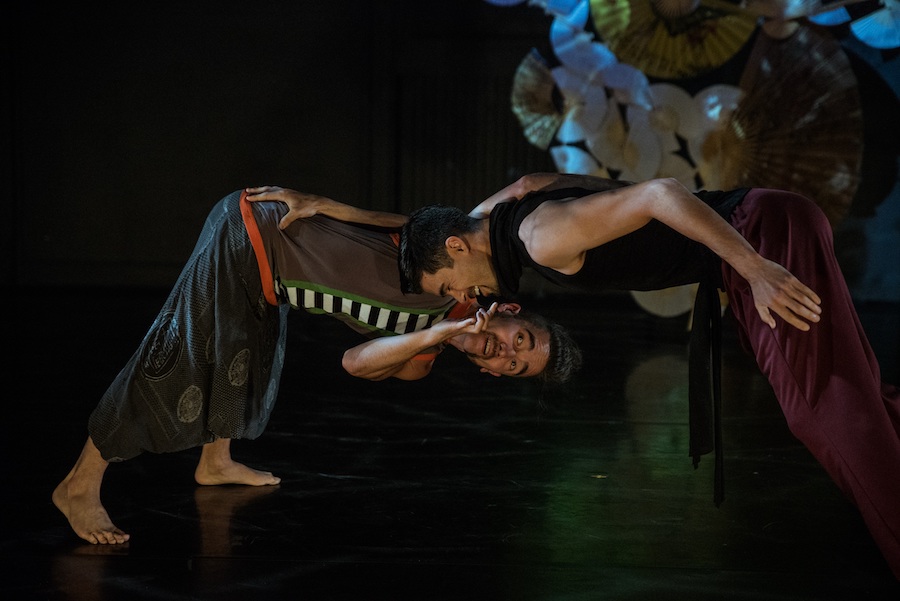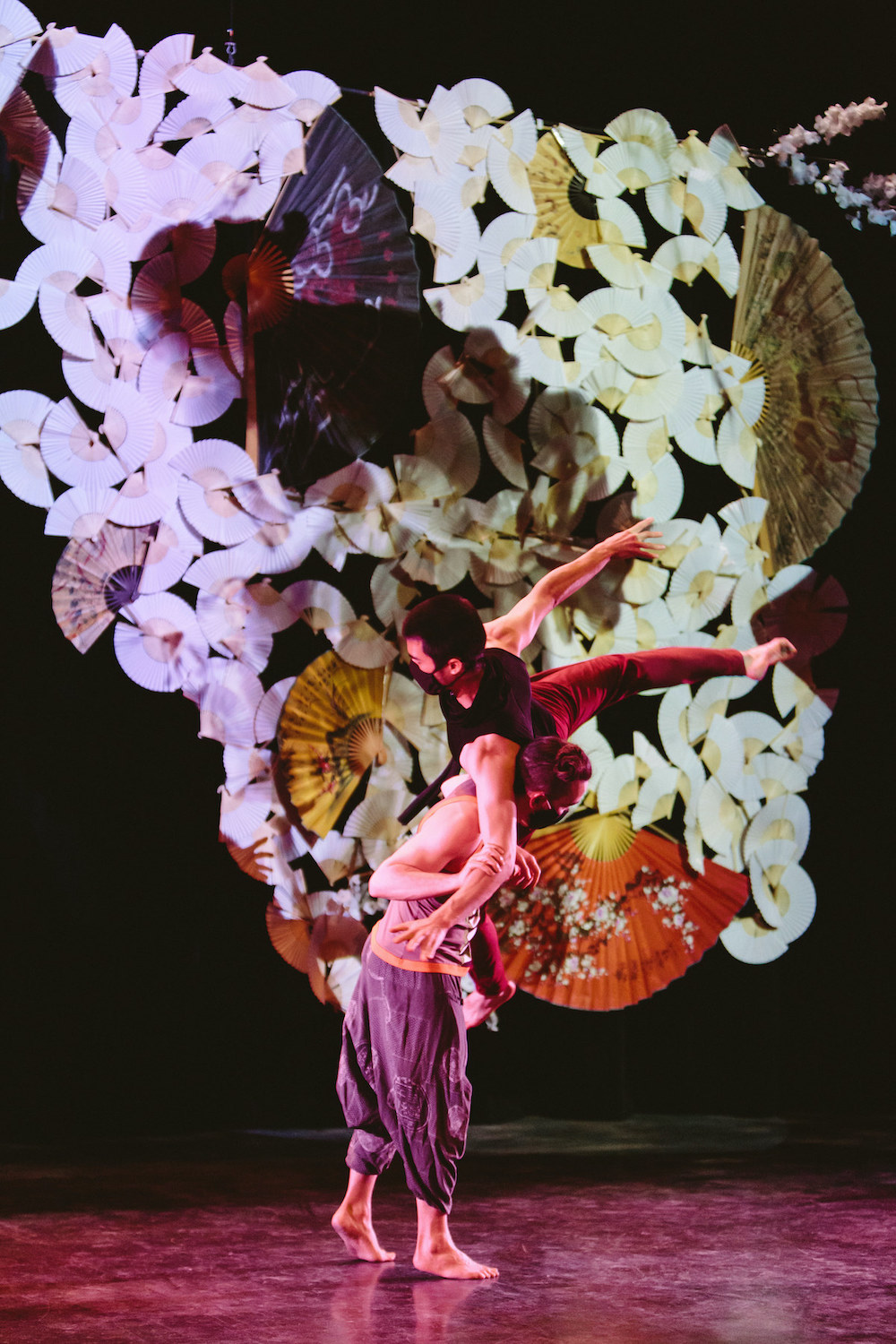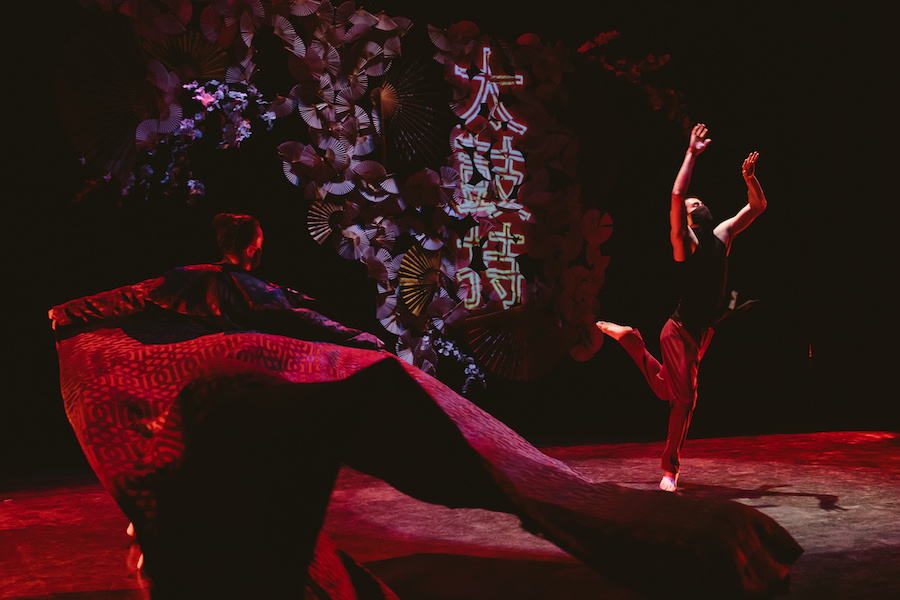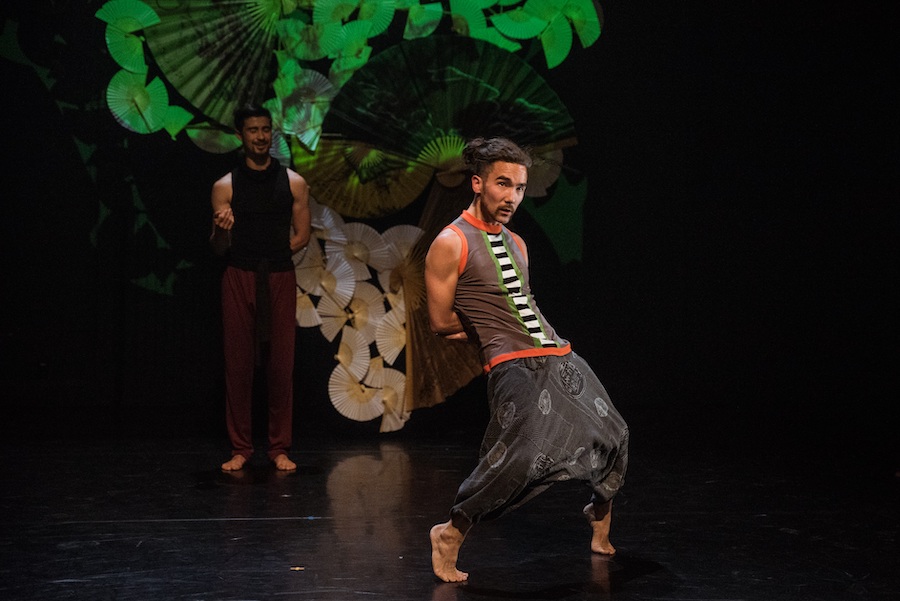April 1-4, online via #DanceForth
KNOW the RULES, WIN the GAME is a clever and refreshing new dance-theatre work choreographed by Kunji Ikeda of Calgary-based Cloudsway Dance Theatre.
Ikeda, creator of the acclaimed and widely toured work SANSEI: The Storyteller, continues his exploration of his Japanese heritage with a duet built from the historical relationship between an emperor and his taikomochi, or clown. Ikeda, a powerhouse martial arts-style mover, tumbles and flips through the work as the taikomochi, sharing the stage with Richard Lee, a tall and lean dancer who embodies the emperor.
As the performers explain right off the bat, the taikomochi in feudal Japan were more than just entertainers to powerful men like the emperor: they actually assisted and advised in all areas of government. In KNOW the RULES, WIN the GAME, Ikeda uses this history to open up a broader discussion of the relationship between politics and art — one that has been brought sharply into focus by the pandemic.

The 35-minute work includes enough diversions and asides to make time fly by. A seemingly serious contemporary dance opening — Lee steps slowly and deliberately across a lit stage to a rising soundscape — is immediately brought down to earth when a second camera depicts Ikeda hiding behind a wall of Japanese fans, beckoning the audience to “shush” with one finger in front of a masked face.
With a stylish set and costumes, the work that unfolds is at once erratic and entertaining. Against a backdrop of colourful fans, Lee and Ikeda explore the symbiotic relationship of emperor and taikomochi through contact-heavy duets. With ease, Ikeda launches himself at Lee, who deftly catches the momentum with a turn and throws him back to the stage. As time goes on, Lee’s dominance becomes more obvious — manipulating Ikeda with marionette-style control to the sound of a chugging electric guitar.

Ikeda and Lee bounce between presenting themselves as comedic collaborators trying to pull off the livestream (whispering about who goes next, disagreeing about the section they are on) and dropping into a darkly intriguing power dynamic as emperor and taikomochi.
Boldly tampering with the fourth wall, Ikeda addresses the camera crew, asks the audience for donations in real time and even gets a camera operator to follow him as he retrieves takeout from the stage door. While Ikeda eats shawarma, wrapping himself in the emperor’s robe and prancing around the stage (this is laugh-out-loud funny), Lee performs a virtuosic sequence in the spotlight, spinning and shifting quickly between gestures.

This back-and-forth between states of formality is both entertaining and disarming and gives the work the levity it needs to broach more serious issues. At one point, Ikeda abandons all metaphors to describe the challenges of Albertan artists, whose access to funding has been cut off at the knees by economic changes. Other issues are weaved intelligently into the story — the taikomochi, pretending to nurse an injured ankle, is forced to perform backflips for the emperor, alluding to the pressures dancers face to work while injured.

Through creative and multi-layered storytelling, Ikeda presents “the artist” as vulnerable though essential to the state — an important foil to the staunch and somewhat dangerous “politician” figure of the emperor. This throws light on the importance of artists more generally and makes one wonder what would happen if artists today were also trusted advisors to government. What would we gain if humour, irony and artistic performance had a part to play in parliamentary proceedings?
Overall, KNOW the RULES, WIN the GAME makes for a lively digital offering and leaves us wanting more. With his new work, Ikeda pushes his theatrical choreography into bold and thoughtful new territory.
Tagged: Dance Theatre, All






